Supervisors
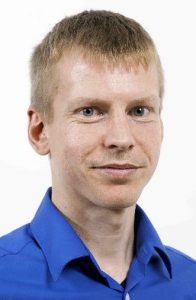
Lutz Ahrens
Lutz Ahrens is Associated Professor in Organic Environmental Chemistry at the Department of Aquatic Sciences and Assessment, SLU, Uppsala, Sweden. L. Ahrens research is focusing on the development of new analytical methods for emerging organic pollutants in the environment using advanced mass spectrometry methods, and application of these methods for transport and fate studies. L. Ahrens is also working on the development of innovative treatment technologies for removal of emerging organic pollutants such as per- and polyfluoroalkyl substances (PFASs) in water (e.g. drinking water, landfill leachate, wastewater), soil and infrastructure decontamination.
Supervisor of: ESR12
Co-Supervisor of: ESR2
Contact: lutz.ahrens(a)slu.se
Website: https://www.slu.se/en/ew-cv/lutz-ahrens/
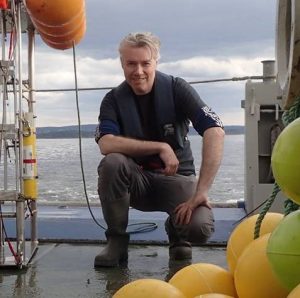
Hans Peter Arp
Hans Peter Arp is a Senior Specialist in the Department of Environmental Chemistry at the Norwegian Geotechnical Institute (NGI), Oslo and Professor II at the Department of Chemistry at the Norwegian University of Science and Technology (NTNU), Trondheim, Norway. His research focuses on the relationship between substance properties of contaminants and their environmental fate, transport, impact and applicable remediation options.
Supervisor of: ESR13
Co-Supervisor of: ESR11
Contact: Hans.Peter.Arp(a)ngi.no
Website: https://www.ntnu.edu/employees/hans.p.arp
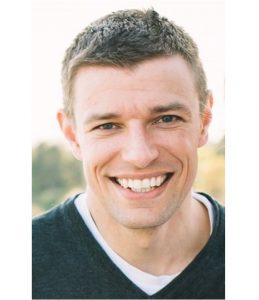
Jonathan Benskin
Jonathan Benskin is a Professor in the Department of Environmental Science, Stockholm University, Sweden. His research focuses on the development and application of novel analytical methods for emerging organic pollutants, in particular involving combustion ion chromatography and high resolution mass spectrometry. Prof. Benskin serves as Assistant Coordinator for PERFORCE3 and is leading WP7 (Dissemination and outreach).
Supervisor of: ESR2
Contact: jon.benskin(a)aces.su.se
Website: https://www.aces.su.se/staff/jon-benskin/
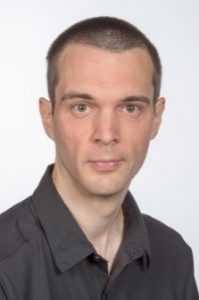
Albert Braeuning
Dr. Albert Braeuning is a biochemist and toxicologist with a strong background in liver toxicity, nuclear receptors and xenobiotic metabolism. Since 2014, he is head of the unit “Effect-based analytics and toxicogenomics” in the Department of Food Safety at the German Federal Institute for Risk Assessment.
Supervisor of: ESR6
Contact: Albert.Braeuning(a)bfr.bund.de
Website: https://www.bfr.bund.de/en/department_food_safety-9906.html
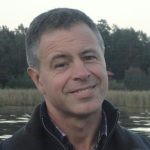
Ian Cousins
Ian Cousins is a Professor in the Department of Environmental Science, Stockholm University, Sweden. His research focuses on understanding the sources, fate and exposure of pollutants. To achieve his research goals, Prof. Cousins uses a combination of experimental and theoretical (e.g. computer modelling) approaches, and collaborates closely with analytical chemists in his department. Prof. Cousins is Coordinator of PERFORCE3.
Supervisor of: ESR3
Co-Supervisor of: ESR2, ESR15
Contact: Ian.Cousins(a)aces.su.se
Website: https://www.aces.su.se/staff/ian-cousins/
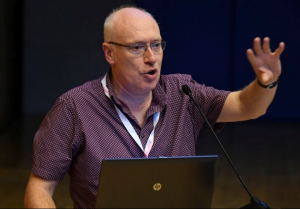
Stuart Harrad
Stuart Harrad is Professor of Environmental Chemistry in the School of Geography, Earth, and Environmental Sciences, University of Birmingham, UK. Stuart’s research addresses multiple aspects of the environmental fate and behaviour of persistent organic pollutants, including PFASs. A particular focus is elucidating the magnitude and pathways of human exposure to such contaminants, spanning surveys of indoor air, dust, and drinking water through to novel in vitro studies of human dermal uptake of contaminants using three dimensional human skin equivalent models. As deputy Director of Training, Stuart will bring considerable experience gained from his supervision of 50 PhD students, and leadership of three previous ITNs: A-TEAM, ELUTE, and INFLAME.
Supervisor of: ESR5
Contact: S.J.Harrad(a)bham.ac.uk
Website: https://www.birmingham.ac.uk/staff/profiles/gees/harrad-stuart.aspx

Sarah Hale
Dr Sarah Hale is a senior researcher at the Norwegian Geotechnical Institute. Her current research focuses on the fate and transport of PFAS in soil, water and biota, the remediation of PFAS in the environment as well as the way in which this substance class can be regulated. She is leading research related to persistent, mobile and toxic (PMT) substances and has vast experience with the use of passive sampling as a monitoring tool.
Co-Supervisor of: ESR13
Contact: sah(a)ngi.no
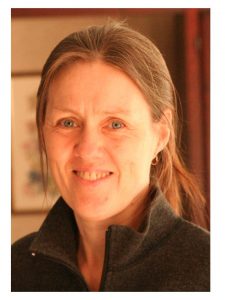
Helen Håkansson
Helen Håkansson is Professor in Toxicology and Chemicals Health Risk Assessment at the Department of Environmental Medicine, Karolinska Institutet, in Stockholm, Sweden. Her research aims to improve safety measures in the society in order to prevent disease and poor life-quality due to chemical contaminants in food and our environment; focus is on the identification of biomarkers and test-methods for receptor-mediated toxicity and endocrine disease mechanisms. Prof. Håkansson serves as Director of Training and is leading WP5 (Training).
Co-Supervisor of: ESR10
Contact: helen.hakansson(a)ki.se
Website: https://staff.ki.se/people/helhak
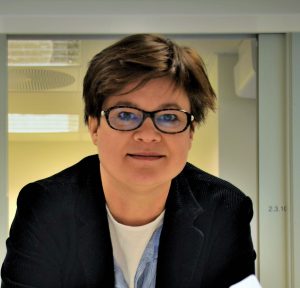
Dorte Herzke
Dorte Herzke is a senior researcher at the department of Environmental Chemistry of the NILU, Norwegian Institute for Air Research. She is also an Associate Professor at the Institute of Arctic and Marine Biology at the UiT the Arctic University of Norway. Her research focuses on emerging organic pollutants and marine plastic in the Arctic environment, in particular focusing on urbanization, human exposure and environmental fate. Dr. Herzke serves as Equality Champion for PERFORCE3, supervising ESR 8 and is leading WP4.
Supervisor of: ESR8
Co-Supervisor of: ESR9
Contact: dorte.herzke(a)nilu.no
Website: https://www.nilu.no/en/employee/dorte-herzke/
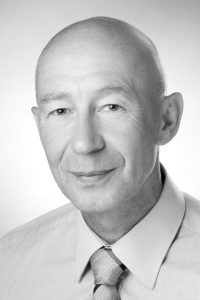
Thomas Knepper
Thomas Knepper is Vice President for Research and Research Funding at Hochschule Fresenius gGmbH in Idstein, Germany and professor in analytical chemistry. He is also founder and director of the Institute for Analytical Research (IFAR). His main research fields are developing analytical methods for monitoring and fate studies of polar organic micro pollutants in the environment as well as other matrices. Among his research work are various studies of per- and polyfluoroalkyl substances and synthetic polymers. He has participated as coordinator or partner in numerous research projects, both national and international. He and his group are also performing contract work for the chemical industry within the mentioned research field.
Supervisor of: ESR14
Contact: knepper(a)hs-fresenius.de
Website: https://www.hs-fresenius.de/forschung-lehre/forschungsinstitute/institute-for-analytical-research-ifar/
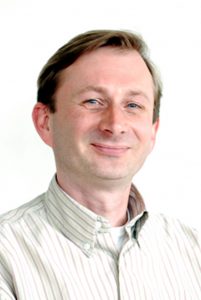
Pim Leonards
Pim Leonards is Professor in the Department of Environmental & Health, Vrije Universiteit, The Netherlands. His research focuses on the link between chemical exposure and the effects on metabolic processes, functioning of organisms, and phenotypical changes using metabolomics and lipidomics approaches. The focus is on metabolic profiling of various biological species to unravel the effects of toxic contaminants. He serves as co-leader of WP2 (Toxicology and Epidemiology).
Supervisor of: ESR7
Co-supervisor of: ESR3, ESR6
Contact: pim.leonards(a)vu.nl
Website: https://research.vu.nl/en/persons/peg-leonards
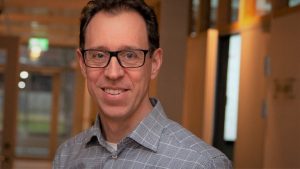
Mattias Öberg
Mattias Öberg is an Associate Professor in the Institute of Environmental Medicine, Karolinska Institutet, Sweden. His research focuses on the development and application of methods for risk characterization and science-to-policy. Dose-response modelling and probabilistic risk assessment of PFAS are key elements in his research. Dr Öberg is also a European Registered Toxicologist (ERT) and a member of several expert groups in risk assessment. In the PERFORCE3 project he serves as lead/co-lead of ATC1 and ATC3.
Supervisor of: ESR10
Contact: mattias.oberg(a)ki.se
Website: https://ki.se/en/imm/research-group-mattias-oberg
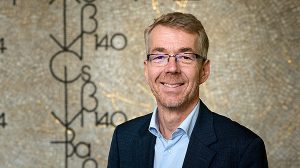
Thorsten Reemtsma
Thorsten Reemtsma is a chemist and Head of the Department of Analytical Chemistry at the UFZ in Leipzig. He is also Professor of Analytical Chemistry at the University of Leipzig. His research focuses on the development of analytical techniques for trace contaminants in water, soils and biota, on tracking trace substances in natural and technical systems and on understanding transformation processes. Thorsten Reemtsma is currently Chair of the Division of Environmental Chemistry and Ecotoxicology at the Gesellschaft Deutscher Chemiker – the German Chemical Society (GDCh) and Member of the Board of the German Water Chemistry Society.
Supervisor of: ESR1
Contact: thorsten.reemtsma(a)ufz.de
Website: https://www.ufz.de/index.php?de=38662
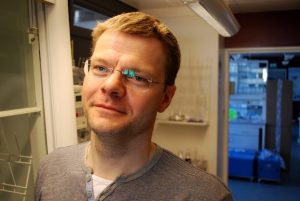
Torkjel Sandanger
I am a professor I epidemiology doing research mainly in the field of molecular epidemiology and environmental epidemiology. In my projects, we investigate molecular processes in blood prior to cancer diagnosis through analyzing epigenetics (DNA-methylation), Gene expression, proteomics and metabolomics. I am focusing on the use of different “omics” level to better study the effects of environmental stressors, as a link between exposure and health endpoints.
Supervisor of: ESR9
Co-supervisor of: ESR8
Contact: torkjel.sandanger(a)uit.no
Website: https://en.uit.no/ansatte/person?p_document_id=42125
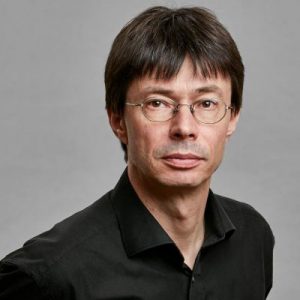
Martin Scheringer
Martin Scheringer is a Senior Scientist at ETH Zürich.
Supervisor of: ESR15
Contact: scheringer(a)usys.ethz.ch
Website: https://emeritus.setg.ethz.ch/people/senior-scientists/prof–dr–martin-scheringer.html

Annemarie van Wezel
Prof. Dr Annemarie van Wezel (1968, MSc Biology UU, PhD environmental chemistry and toxicology UU) has long experience as scientist in water quality, risk assessment and risk mitigation, environmental toxicology and chemistry, and environmental policy evaluation. She been granted many projects in the field of chemicals of emerging concern and water quality, examples are the European projects FP7 Solutions, ITN ECORISK2050, ITN PERFORCE3, and Dutch NWO funded projects such as Shale gas & water, TRAMP (Technologies for risk assessment for microplastics), EMERCHE (Effect-directed Monitoring tools to assess Ecological and human health Risks of CHemicals of Emerging concern in the water cycle), RUST (Re-USe of Treated effluent for agriculture) and PsychoPharmac’eau (Psychopharmaceutical Prevention & Pilots to Reduce Effects in the water cycle). She is interested in the science-to-policy interface, in scientific outreach and has ample experience in media appearances. She is a member of the Dutch Health Council and the Dutch Board on authorization of plant protection products and biocides CTGB. She holds the chair Environmental Ecology and is Scientific Director of IBED (Institute for Biodiversity and Ecosystem Dynamics) at the University of Amsterdam.
Supervisor of: ESR4
Contact: a.p.vanwezel(a)uva.nl
Website: https://www.uva.nl/profiel/w/e/a.p.vanwezel/a.p.van-wezel.html
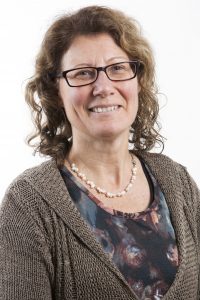
Karin Wiberg
Karin Wiberg is Professor of Organic Environmental Chemistry at the Department of Aquatic Sciences and Assessment, Swedish University of Agricultural Sciences (SLU), Sweden. Her line of research is sustainable use of water with respect to anthropogenic pollution by legacy and emerging organic pollutants. Wiberg’s research aims at a better understanding of sources, transport and fate of micropollutants impacting water quality and involves screening and early warning methodology, treatment techniques, and new strategies for identification of previously unknown chemical risks with a focus on drinking and waste water.
Supervisor of: ESR11
Contact: karin.wiberg(a)slu.se
Website: https://www.slu.se/en/ew-cv/karin-wiberg/


